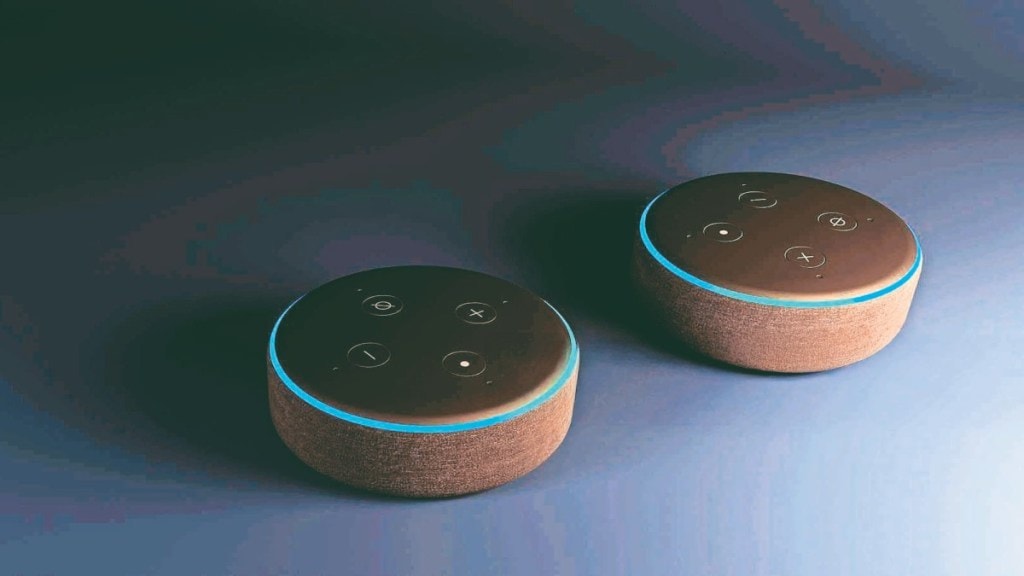If you have an Amazon Echo device at home or regularly use the tech giant’s voice assistant — Alexa+ — any conversations you’ve had with it in the past week have reached Amazon’s servers.
A few weeks ago, the Jeff Bezos-owned company sent out an email to all its customers saying that from March 28 onward, users won’t have the option to save their recordings only on their device, and that every single recording would be uploaded to Amazon’s cloud.
The email read, “As we continue to expand Alexa’s capabilities with generative AI features that rely on the processing power of Amazon’s secure cloud, we have decided to no longer support this feature.”
What this essentially means is that the company would be using your recordings to train its large language models (LLM) for the new artificial intelligence (AI) developments being worked on for Alexa+.
At a time when privacy and data protection are serious concerns for users, would this count as swapping privacy for any newer updates that Amazon might be working on? Or would this equate to you letting your voice prompts be used for greater ease and convenience for your everyday tasks in the coming future?
The catch here is that yes, while privacy is being swapped for updates and developments, the user is actually not being given the option to decide if they want their voice prompts to be made available to the company’s cloud. Amazon has taken away that bit from the customer by making the decision on its own.
However, Amazon’s spokesperson Lauren Raemhild had said, “The Alexa experience is designed to protect our customers’ privacy and keep their data secure, and that’s not changing. We’re focusing on the privacy tools and controls that our customers use most and work well with generative AI experiences that rely on the processing power of Amazon’s secure cloud.
Customers can continue to choose from a robust set of tools and controls, including the option to not save their voice recordings at all. We’ll continue learning from customer feedback and building privacy features on their behalf.” Raemhild also went on to say that you can still delete the voice recordings from the Amazon servers after they’ve been processed on the cloud. The question of how much of a relief that is will only be answered with time when more research is done or when the company itself reveals information on data privacy of users. Meanwhile, researchers at the United States’ Northeastern University and University of South California recently published a paper, titled Echoes of
Privacy: Uncovering the Profiling Practices of Voice Assistants, where they looked into Amazon’s Alexa, Apple’s Siri, and Google Assistant to try and figure out just how much these smart voice assistants are profiling their users.
The study found that while Alexa was using the questions users asked it to target products to them through Amazon, Google’s profiling was quite often incorrect, and Apple refused to share any data about this at all — which is also perhaps why there have been concerns raised lately about letting user conversations being used to train the AI models of voice assistants.
Interestingly, it was only earlier this year that Amazon had announced its first major upgrade to Alexa since 2014, moving to Alexa+ — which already came embedded with generative AI. On the day of the launch, February 26, Panos Panay, who leads devices and services at Amazon, said in a statement, “Alexa+ is more conversational, smarter, personalised – and she helps you get things done. She keeps you entertained, helps you learn, keeps you organised, summarises complex topics, and can converse about virtually anything. Alexa+ can manage and protect your home, make reservations, and help you track, discover, and enjoy new artists. She can also help you search, find or buy virtually any item online, and make useful suggestions based on your interests. Alexa+ does all this and more — all you have to do is ask.”
Amazon is actually the latest to add a suite of AI features to its voice assistant, while Apple has already integrated AI features into Siri, and Google has done the same with Gemini.
In fact, Apple has been working on adding more AI enhancements to its voice assistant, which it recently said would be unveiled by 2026. The tech giant has said that it is “working on a more personalised Siri, giving it more awareness of your personal context, as well as the ability to take action for you within and across your apps. It’s going to take us longer than we thought to deliver on these features and we anticipate rolling them out in the coming year.”









